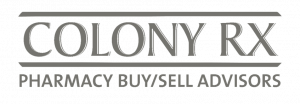Excessive Personal Expenses and Skimming Cash When Selling a Pharmacy
It’s best to eliminate skimming cash and the running of excessive personal expenses through the company, or the skimming of cash, several years before selling your business.
Properly documented personal expenses run through the business, which have nothing to with operating the business, can be added back into EBIDA, so long as you have documentation to prove it. And make no mistake, the onus is on the seller to prove the expense had nothing to do with the operation of the business.
In reviewing a marketing package for the sale of a business, one of the first things a buyer is going to see is the normalization of cash flow that show those “junked up” or messy personal expense add-backs. First impressions are lasting impressions and messy normalizations definitely create a negative impression from the beginning. Therefore, it’s important to be 100% fair and conservative when doing these add backs.
Types of personal expense add-backs when selling a business
Personal expense add-backs might include a number of non-business expenses related to vehicles for you and your family; household; travel, vacation and entertainment; insurance; professional fees; cell phones, membership dues; country clubs; and season tickets. It may also include payroll checks to family members not working in the business, etc.
A buyer will want a seller to prove those non-business add-backs. Particularly if they are material to the calculation of EBIDA, a buyer is not going to just take the seller’s word for it. The need to prove/verify those add-backs can lead to some uncomfortable moments for both parties during the acquisition process.
A few notes about add backs:
- Usually, we can get most documented add backs included to the seller’s credit.
- Buyers tend to be a distrustful of addbacks. If a buyer sees personal expenses that are so exorbitant that it may border on tax evasion, they begin to lose faith in the integrity of the seller. They may think, “If you’re not being honest with the IRS, how can I expect you to be honest with me?”
- One addback category we have major problems getting buyers to agree to are “projected add backs” related to staffing. Here, the seller says something like, “I have three techs, but I only need one. You can clean that up after you buy the store.” The buyer’s correct answer to this is, “if it’s so easy to reduce staffing, please do so before the sale and show me that the business is stable for 3 months before I buy it. I cannot come into your business and fire people day one.” Seller’s will usually lose this argument.
- Many business sale transactions are financed by lenders backed by the SBA. While you may be able to convince a buyer that personal expense add-backs are justified, lenders may not be so accommodating. In small business lending evaluations, it is not unusual for the personal add-backs to be such a significant portion of SDE that the lender is unable to approve the financing of the acquisition.
Clean records help facilitate a smooth business sale
Many owners have been running small personal expenses through the business for so long, they’ve forgotten about them. Family cell phone bills, family insurance bills, family automobile repairs, etc., can be so routine, you almost forget they are non-business. Those expenses can add up quickly and significantly reduce SDE.
In preparing for a sale of your business, the best thing to do is to completely eliminate those non-business expenses so you can maximize cash flow (SDE), thus maximizing the value of your business. It’s also best to eliminate non-essential business expenses. A couple of years of “clean” records will make the selling process smoother and yield a higher sale price.
Stop skimming cash when selling a business
Pharmacies typically have very little cash compared to insurance payments. However, some pharmacies large front stores, cash RX business and other large non-RX business can see a lot of unreported cash. The problem with skimming lots of cash from these stores is that it distorts gross margin and makes the store harder to sell. Our advice: don’t do it.
Excessive tax avoidance negatively impacts your ability to sell C-Corporation stock
To avoid double taxation of a C-Corporation, a possible alternative is for the C-Corporation owner (stockholder) to sell his shares of stock in the corporation (as opposed to the corporation selling its assets) to achieve favorable capital gains tax rates.
Prospective sellers should be aware that buyers are unlikely to acquire the stock of a C-Corporation that has a potential tax liability for excessive personal expenses run through the business or for skimmed cash. This is just another reason not to do these things.
Do you need to minimize the personal expenses you run through your business? If you want to know, give ColonyRX a call.



